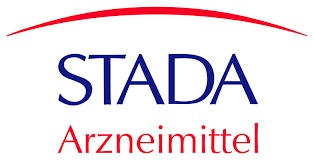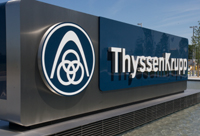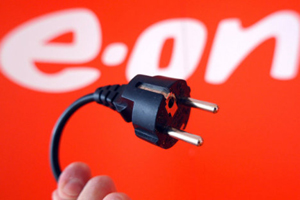Capital News
STADA Arzneimittel AG: Final chapter in the takeover bid started
 The turbulent takeover of STADA by Bain and Cinven (the “investors”) entered its final stage with the publication of the conclusion of a profit and loss transfer agreement between STADA as the controlled company and Nidda Healthcare GmbH as the controlling company. Nidda is the investment vehicle of the two instutional investors. The agreement offers outstanding shareholders in STADA a cash compensation of 74.4 EUR per share. In addition, the agreement provides for a recurring compensation payment of 3.82 EUR gross (3.53 Euro net at current tax rates) per share for investors who want to stay as shareholders instead. The initial price offered by the investors amounted to 66.25 EUR per share. This bid resulted in the acquisition of approximately 64.5 percent of the equity of STADA. A substantial block of the outstanding shares are held by Elliott (Paul Singer). The profit and loss transfer agreement is subject to approval of a planned AGM.
The turbulent takeover of STADA by Bain and Cinven (the “investors”) entered its final stage with the publication of the conclusion of a profit and loss transfer agreement between STADA as the controlled company and Nidda Healthcare GmbH as the controlling company. Nidda is the investment vehicle of the two instutional investors. The agreement offers outstanding shareholders in STADA a cash compensation of 74.4 EUR per share. In addition, the agreement provides for a recurring compensation payment of 3.82 EUR gross (3.53 Euro net at current tax rates) per share for investors who want to stay as shareholders instead. The initial price offered by the investors amounted to 66.25 EUR per share. This bid resulted in the acquisition of approximately 64.5 percent of the equity of STADA. A substantial block of the outstanding shares are held by Elliott (Paul Singer). The profit and loss transfer agreement is subject to approval of a planned AGM.
Steinhoff International: Shareholders are advised to exercise caution
These are turbulent days for everybody involved in Steinhoff. On 6 December 2017 the supervisory board advised that new information has come to light which relates to accounting irregularities requiring further investigation. On the 14th, the supervisory board formed the view that based on section 2:362 (6) of the Dutch Civil Code the 2016 consolidated financial statements will need to be restated and can no longer be relied upon. At the same time, recent weeks saw several changes in the management team, and rising concerns with banks. Hence, at a meeting with its bankers on 19 December 2017, the company admitted that “the recent announcements have had a destabilizing effect on the group that will need to be addressed in order to preserve value for all stakeholders.” With a total debt of 10.7 bn EUR as of 14 December 2017, it is therefore not a bad conclusion that “continuing support from the group´s creditors and other stakeholders will be required to maintain stability and to provide the required time to address the current issues and preserve value for all stakeholders”.
Uniper SE: Not (yet?) in love with Fortum
This month, Uniper disclosed its earnings targets for next year and the dividend policy. While the outlook for 2017 has been confirmed with an EBIT auf 1.0 to 1.2 bn EUR, the effects of the sale of assets will contribute to a decline of the adjusted EBIT to 0.8 to 1.1 bn EUR. At the same time, though, the company announced that the dividend proposal for next year shall be 25 percent up on this year. Furthermore, Uniper expects to raise dividends until 2020 by an average 25 percent per year. At the same time, management confirmed its view on the voluntary public takeover (at 22 EUR a share, including 0.69 EUR dividends) offer from Fortum. In a joint statement on this offer, Uniper´s management board and its supervisory board came to the conclusion that the offer does not reflect Uniper´s true value, Also, according to the statement there is no recognizable contribution to a better development perspective for Uniper. While this sounds a bit like the usual “please do not touch”-wording, a new player entered the scene and might well contribute to a higher offer price at the end. According to a voting rights announcement published on 19 December, the Paul Singer controls 7.38 percent of the voting rights. It is not really likely that this investor is interested in a regular dividend increase.
BASF underpins commitment to agriculture
 Agriculture has always been an important part of BASF´s portfolio. But in retrospect, one gets the idea that it never was in the forefront of the strategic planning. For example, the competition regrouped to form so-called integrated businesses, combining seeds, chemicals and more recently information technology over the course of recent years, leaving only marginal room for the remaining smaller and midsized independent players for profitable growth.
Agriculture has always been an important part of BASF´s portfolio. But in retrospect, one gets the idea that it never was in the forefront of the strategic planning. For example, the competition regrouped to form so-called integrated businesses, combining seeds, chemicals and more recently information technology over the course of recent years, leaving only marginal room for the remaining smaller and midsized independent players for profitable growth.
With the announcement of the acquisition of Monsanto by Bayer, it became apparent that BASF had to come to a decision about the future of its agriculture business. Hence, the agreement to acquire significant parts of Bayer´s seed and non-selective herbicide businesses by BASF did not come as surprise. The deal demonstrates once more the clever orchestration of the Monsanto-acquisition, with Bayer receiving Euro 5.9B for the sale of businesses with a sales volume of Euro 1.3B and an EBITDA of around Euro 385M for 2016. Needless to add that it is subject to the closing of Bayer´s acquisition of Monsanto.
K+S Group provides a very long term perspective
 Shareholders of K+S Group are probably very patient people, waiting for longer-term orientations from time to time. And typically they tend to look into the future. But occasionally it is worthwhile to pay attention to the recent past. One year ago, the K+S management explained to shareholders at the AGM that a discussed takeover bid at 41 Euro was not sufficient. Since, a mixed news flow kept the share price well below this line. What is more, in August K+S announced that the target “of achieving consolidated EBITDA of around € 1.6 billion in 2020 is not realistic anymore”.
Shareholders of K+S Group are probably very patient people, waiting for longer-term orientations from time to time. And typically they tend to look into the future. But occasionally it is worthwhile to pay attention to the recent past. One year ago, the K+S management explained to shareholders at the AGM that a discussed takeover bid at 41 Euro was not sufficient. Since, a mixed news flow kept the share price well below this line. What is more, in August K+S announced that the target “of achieving consolidated EBITDA of around € 1.6 billion in 2020 is not realistic anymore”.
This is not the kind of news flow shareholders are looking for. But with the recent publication of its “Shaping 2030” Group strategy”, K+S replaced this picture with new long-term expectations for its shareholders. The new strategy goes to “reposition a manufacturing-driven company into a market-focused, customer-focused enterprise”. K+S expects an annual positive earnings effect of at least € 150 million p.a. by the end of 2020 and plans to become Free Cash Flow positive by 2019. The indebtedness (Net debt/EBITDA) is to be halved by 2020, helping to regain an investment grade rating in 2023. So far, so good, but the real news is the ambition for 2030: € 3 billion EBITDA with at least 15% Return on Capital Employed.
Unfortunately the share price did not react on this news and remained at approx. 21 Euro. But well, at least shareholders with a long term investment horizon can relax. With 2030 in mind, even an average of 5% p.a. should be sufficient to surpass the 41 Euro line.
Thyssenkrupp: Combination of European steel activities with Tata Steel
 Thyssenkrupp announced the signing of a memorandum of understanding with Tata Steel to combine their European steel activities in a 50/50 joint venture. The new entity is set to have pro-forma sales of about 15 billion Euro and a workforce of about 48,000. Shipments are envisioned to be about 21 million tons a year. The expected annual synergies are 400 to 600 million Euro.
Thyssenkrupp announced the signing of a memorandum of understanding with Tata Steel to combine their European steel activities in a 50/50 joint venture. The new entity is set to have pro-forma sales of about 15 billion Euro and a workforce of about 48,000. Shipments are envisioned to be about 21 million tons a year. The expected annual synergies are 400 to 600 million Euro.
The transaction with an expected closing towards the end of next year has been expected for a while and tackles the structural challenges of the European steel industry. At first glance, this looks like a great transaction for both partners. But pay attention to the details, since 50/50-constellations tend to be unstable. Also, the move means a lot to thyssenkrupp´s corporate culture. There are definitively more chances than risks involved. Nonetheless, investors are probably well advised to keep an eye on the corporate governance aspects, though.
E.ON: Not everybody embraces Fortum
 Shareholders reacted positive on the recent publication of so-called advanced negotiations regarding an agreement according to which the company would have the right to decide to tender its remaining Uniper stake in the course of a public takeover offer by Fortum in early 2018, offering the opportunity to dispose of its 46.65 % holding in Uniper SE. Fortum`s offer (to all Uniper shareholders) would comprise a cash consideration with a total value of 22.00 Euro per share.
Shareholders reacted positive on the recent publication of so-called advanced negotiations regarding an agreement according to which the company would have the right to decide to tender its remaining Uniper stake in the course of a public takeover offer by Fortum in early 2018, offering the opportunity to dispose of its 46.65 % holding in Uniper SE. Fortum`s offer (to all Uniper shareholders) would comprise a cash consideration with a total value of 22.00 Euro per share.
Despite the positive reactions of its shareholders and the share prices of the companies involved, the Uniper CEO demonstrated a cool stance, stating that “this unsolicited takeover offer is clearly not in line with the strategy of Uniper as recently reiterated publicly.” Uniper is currently not in discussions with either of Fortum or E.ON in regard to the unsolicited and conditional transaction proposals described in their respective statements. If and when appropriate, the Supervisory and Management Boards of Uniper will evaluate any forthcoming specific proposal in detail and in the interest of the company and all its stakeholders.
Dear Mr. Schäfer, there is no need to hide behind unspecific and unknown interests of the company and all its stakeholders. This type of encrusted bureaucratic statements may have been ok in the old days as a monopoly player. Not any more, sorry.
zooplus AG: “Investing in accelerating growth” sends the share down
The leading online retailer for pet supplies published a very clever profit warning. According to the news, the company plans to invest more heavily in acquiring profitable new customers to achieve a sustainable acceleration in sales growth. As a “result”, the management board of zooplus AG decided to revise its 2017 full-year target range for earnings before taxes (EBT) from Euro 17 – 22 M to a single-digit million amount.
So, the year is nearly over, and as a result of the decision to invest an amount of perhaps Euro 15M gets lost? Maybe, but the share price reaction tells us that shareholders did not buy the story. Besides, how can you “significantly accelerate the company`s growth in the third and fourth quarter”, if at the time of the announcement (i.e. September 15th) the third quarter is nearly over and the company still “plans to invest more heavily”?














